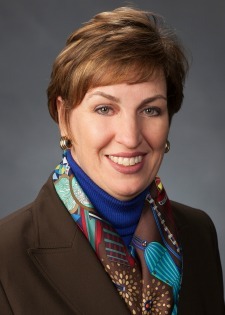 There is a huge opportunity for women in cybersecurity, a field that’s not only lacking in females, but which faces an overall talent shortage.
There is a huge opportunity for women in cybersecurity, a field that’s not only lacking in females, but which faces an overall talent shortage.
The Bureau of Labor Statistics shows that 209,000 cybersecurity jobs went unfilled in 2015 and job postings are up 74% in the past five years. And, the Women’s Society of Cyberjutsu says that only 11% of the world’s information security workforce is female. Put those statistics together and it’s clear now is the time to fill the cybersecurity pipeline with women.
Of course, this is easier said than done when there aren’t a lot of women role models in the space. (See BT’s Security Boss: Tech Has No Age.)
McMahon has spent more than 20 years in cybersecurity, including serving as the chief information security officer at Lockheed Martin and frequently briefing White House and Congressional staff on sensitive security matters. Her storied career has led her to appreciate mentors, value risk taking and understand the importance of staying on top of technology trends. It’s also led her to believe the industry needs more women, especially in information technology. Read on for her thoughts on how to stack the pipeline and keep advancing in your own career.
Women in Comms: Tell us a bit about your personal story and how you got to where you are today.
 Chandra McMahon
Chandra McMahon
WIC: Have you faced any unique challenges or opportunities as a woman in the tech space?
CM: There have been plenty of times when I’ve been the only woman in a very technical meeting. Fortunately, that happens much less than when I started my career. Throughout my career, I’ve been fortunate to have several sponsors and mentors — both men and women. And, like any tech-focused role, there is always the challenge of staying up-to-date as technology changes. That’s especially true in information security, where threats, tactics and technologies change very fast.
WIC: What do you think is the most pressing issue or challenge affecting women in our industry today?
CM: We need more women in our industry and especially in information security! Specifically, we need more women in senior leadership roles so that early and mid-career women see it’s possible to achieve their career aspirations. I also believe it’s important to provide mentoring and networking opportunities to help other women grow their skills and capabilities.
WIC: What makes you feel optimistic — or, conversely, pessimistic — about the future for women in comms?
CM: I’m optimistic for the future. The talent shortage has compelled companies to get more innovative at how they look for and develop people with technical skills. Verizon partners with a number of organizations that promote STEM to young women still in school. We’re also doing more to encourage women as they grow careers in highly technical areas — both to support them when they are the only woman in the room and to get more women at the table.
WIC: What is your advice for other women in comms, whether just starting or those looking to advance in their careers?
CM: Take risks! When you look for that next career opportunity, look for a situation where you have about 70% of the knowledge and tools needed, and go in knowing that developing that last 30% is what will make the job fun and exciting. Too often women will look at a position and not even apply if they aren’t masters of 100% of what the job requires. Also, I’d encourage women to create their own personal board of directors, a group of carefully selected mentors and individuals who can help you as you design and advance your career.
